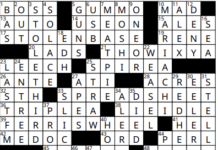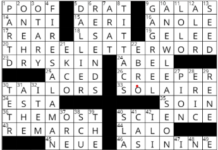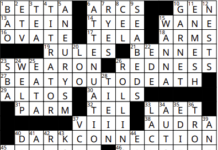Look, let’s get this out of the way. I’m shipping trash. I have spent a solid decade of my young life freaking out about pairing different (usually same-sex) characters together and consuming every form of fan media possible for it.
Most of it is just fun with friends, but sometimes it functioned instead as a quest to try and find the representation I, as a queer person, was desperate for. In the media I watched, there weren’t people who looked and loved like I did. So I, like many queer people, had to really look for my own representation.
And wouldn’t you know, show runners are no longer oblivious to this.
Queer-baiting is the new buzz word for this representation-teasing prevalent in shows that understand the importance of the queer market.
It works by presenting characters who, to queer people, show obvious and relatable signs of being queer, gay, bi, etc. This can be hinting towards attraction to other same-sex characters, alluding to coming out, or having other characters blatantly question their sexuality.
This alone isn’t an issue, but it becomes “baiting” when show runners do this purposefully and then, to keep the larger market — that would be uncomfortable with queer main characters — happy, deny they ever did such a thing.
To quote Tumblr user Actualanimevillian, “Queer-baiting is even more painful than erasure, because it dangles fair and equal representation in front of your eyes, snatches it away, and then tells you that the whole thing was in your imagination all along.”
I’m looking at you, Sherlock and Supernatural. You damn representation danglers.
To give a small taste of how this works, I will use Supernatural as an example. The show is often criticized for their use of this tactic, with TV Guide even writing an article titled “Supernatural Has a Queerbaiting Problem That Needs to Stop.” When you have executive producer Phil Sgriccia saying that their lead character Dean Winchester has “potential for love in all places” in reference to a scene between Dean and another man who flirted with him, only for script supervisor Chad Kennedy to later tweet, “I support the idea of a bi lead chars. But on this specific show, it is not our intention for these characters. Clearer?” which sort of sends some pretty mixed signals.
Who is right, then? How can a scene or phrase have two varied readings? Well, it’s a bit more complicated than that because in reality, both readings are right.
When Prof. Jennifer Saul came to Waterloo to present on the topic of message manipulation used in race and politics, she brought up the concept of “explicit dog whistles.” These are phrases, scenes, and images that have two different (and very intentional) messages for two different audiences: the main audience who sees an innocent message, and a secret, alternative audience who understands the other, usually unaccepted, message. Whether that is racism in the case of Saul’s studies or, in the case of queer representation, alluding that a character is queer, the same concept applies.
It’s a bit like queer drug dealing in a sense. You keep a veneer of heterosexuality and deniability, while on the side you are hustling a little gay “something extra” for cash.
Though thankfully shows like Orange is the New Black are challenging the idea that queer-dominant shows automatically do poorly, it is still generally accepted by media companies that queer people in television cannot be main characters for a show to do exceptionally well. This is mostly born out of a fear that it will scare away the larger audience uncomfortable with queer representation. If they are uncomfortable, they will turn the television off, and that is too big of a risk to take.
So why bother queer-baiting at all?
It pays, that’s why.
It’s lucrative since the queer market is so starved of representation (we’ll take your pandering, thanks). Queer people are much more likely to tune into a show with characters they can identify with, and as such will pour a lot of money into buying merchandise and supporting the show.
By queer-baiting and using these “dog whistles” to create secret queer representation to lure in the queer market while still appearing innocent to the masses, show runners can have their gay cake and eat it too.
This is disheartening because we exist in a society where queer people are becoming accepted. If we as a society want to fully embrace our queer people, it is our duty as a society to provide proper queer representation, not just hinting towards it and then revoking it while still profiting off it on the side like some representation drug dealer.
And until that day comes, you’d better damn well believe I am going to continue shipping.































